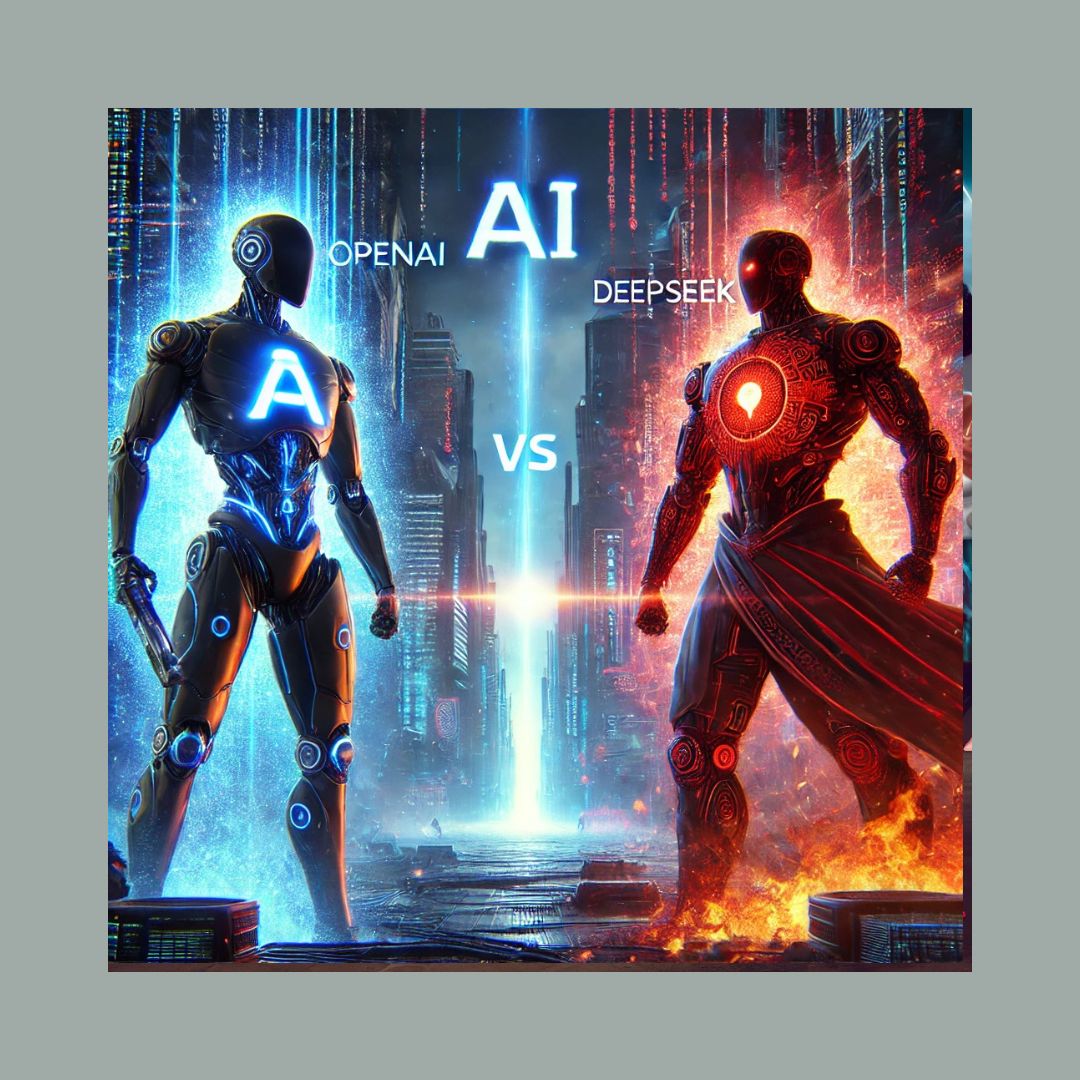In the fast-paced world of artificial intelligence, there is an emerging digital war between U.S. tech giant OpenAI and Chinese AI startup DeepSeek. This isn’t just about who builds the smartest chatbot; it’s about global tech dominance, intellectual property battles, and the future of AI accessibility.
DeepSeek’s recent unveiling of DeepSeek-R1, a powerful AI model developed at a fraction of the usual cost, sent shockwaves through the industry. While AI development often requires investments in the hundreds of millions, DeepSeek allegedly built its model with just $5.6 million. That is an almost absurdly low budget compared to its Western counterparts.
And that’s where things get murky.
Emerging digital war: Reverse engineering or innovation?
OpenAI has accused DeepSeek of engaging in distillation, a technique where a smaller AI model is trained to mimic a more advanced one. This is akin to essentially letting a student learn from a master. This method isn’t inherently illegal, but if done using proprietary data, it crosses into the territory of intellectual property theft.
David Sacks, the AI czar of the Trump administration, has stated that there’s “substantial evidence” DeepSeek extracted knowledge from OpenAI’s models. OpenAI, meanwhile, insists that such practices violate its terms of service and has vowed to detect and prevent further unauthorized use.
But here’s the thing. Reverse engineering isn’t new in tech. The real issue is how this emerging digital war reflects the ongoing U.S.-China technology rivalry, where AI is the latest battleground.
Digital warfare: A battle for AI supremacy
This isn’t just about OpenAI versus DeepSeek—it’s about global competition in AI leadership. China has been aggressively pushing for AI independence, investing billions into homegrown models. DeepSeek’s rapid progress, whether through legal means or not, signals that the AI race is tightening.
Microsoft is reportedly investigating whether DeepSeek-linked entities improperly obtained OpenAI’s data. The mere suggestion of such a breach has rattled the industry, leading to heightened calls for digital security and stricter regulatory oversight.
Meanwhile, Western AI firms are caught in a paradox. They push for open AI research while simultaneously scrambling to protect their intellectual property. The emerging digital war is, therefore, no longer just about technology—it’s a geopolitical struggle.
What this means for AI users
So what does this mean for the average AI user? Several things:
- Cheaper AI tools: If DeepSeek’s model truly rivals OpenAI’s at a fraction of the cost, AI could become more affordable and accessible to the masses.
- Faster innovation: Competition drives progress. If DeepSeek’s rise pressures OpenAI, we may see better, faster, and more powerful AI models sooner than expected.
- Ethical concerns: But at what cost? If AI firms freely “borrow” from each other without safeguards, intellectual property disputes could stifle genuine innovation.
The PR in the emerging digital war.
While OpenAI is fighting DeepSeek through legal means, there’s another aspect to this emerging digital war—the PR battle.
In the past, companies relied on traditional lawsuits and closed-door negotiations. Today, the fight is just as much about public perception. OpenAI is framing itself as the victim of intellectual theft, while DeepSeek remains largely quiet, letting speculation drive the narrative.
But in a world of TikTok trends and AI-generated content, digital PR strategies must evolve. Rather than rely on controversy, companies can leverage social media, blockchain-based security measures, and real-time transparency to build credibility.
The future of AI rivalries
With AI being the defining technology of the decade, this emerging digital war is just the beginning. Other tech giants like Google, Meta, and Chinese AI labs are watching closely. How OpenAI and DeepSeek navigate this crisis will set the precedent for future AI conflicts.
Should AI companies collaborate more openly, or should they fiercely guard their creations? for now, one thing’s for sure — this battle for digital dominance is just beginning.
Indeed, this emerging digital war isn’t just about two companies. It’s about the future of AI ownership, innovation, and the fine line between competition and controversy. As AI continues to shape our world, the question remains: Who will win this high-stakes game of intelligence and influence?
- Drop your comments, observations and like the page.

Leave feedback about this